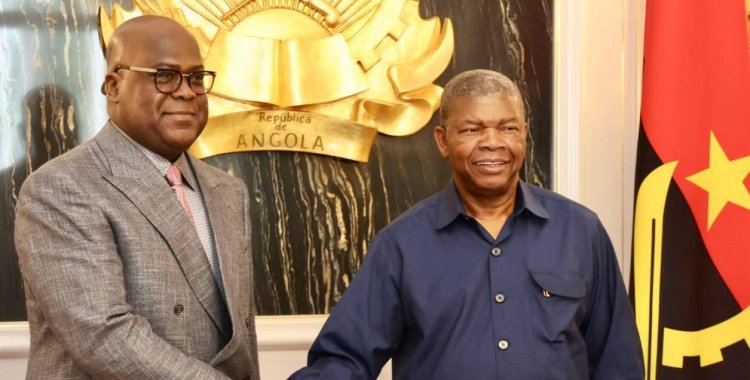According to Angop, which quotes the Minister of Foreign Affairs, Téte António, the two heads of state reiterated the good relations between the two countries and agreed to maintain "regular consultations", within the scope of the rotating presidency of the African Union, currently held by Angola.
On the eve of the meeting, João Lourenço was questioned, during a visit to Lunda Sul, about the decision to abandon mediation in the conflict between the DRCongo and the rebel movement M23, stating that it was not "a sign of enmity with absolutely anyone".
In announcing the decision on Monday, the Angolan presidency explained that it intended to focus on the priorities defined by the African Union.
The end of Angolan mediation occurred after, last week, the Presidents of the DR Congo and Rwanda, Félix Tshisekedi and Paul Kagame, respectively, met in Doha with the Emir of Qatar, to discuss the conflict that opposes government forces to the March 23 Movement (M23), supported by Rwanda (according to the UN and countries such as the United States, Germany and France).
On that same March 18, a first round of talks between the M23 and a delegation from the DR Congo was expected in Luanda, "an action aborted in extremis by a set of factors, including some external and foreign to the African process that was taking place", according to a statement from the Presidency of the Republic.
The surprise at what happened was expressed by the Minister of Foreign Affairs, Téte António, quoted by Jornal de Angola, who considered that "all efforts to resolve conflicts are welcome", but, he noted, African problems should have an African solution.
Armed activity by the M23 – a group made up mainly of Tutsi victims of the 1994 Rwandan genocide – resumed in November 2021 with attacks against the government army in North Kivu, having advanced on several fronts and threatening to escalate into a regional war.







